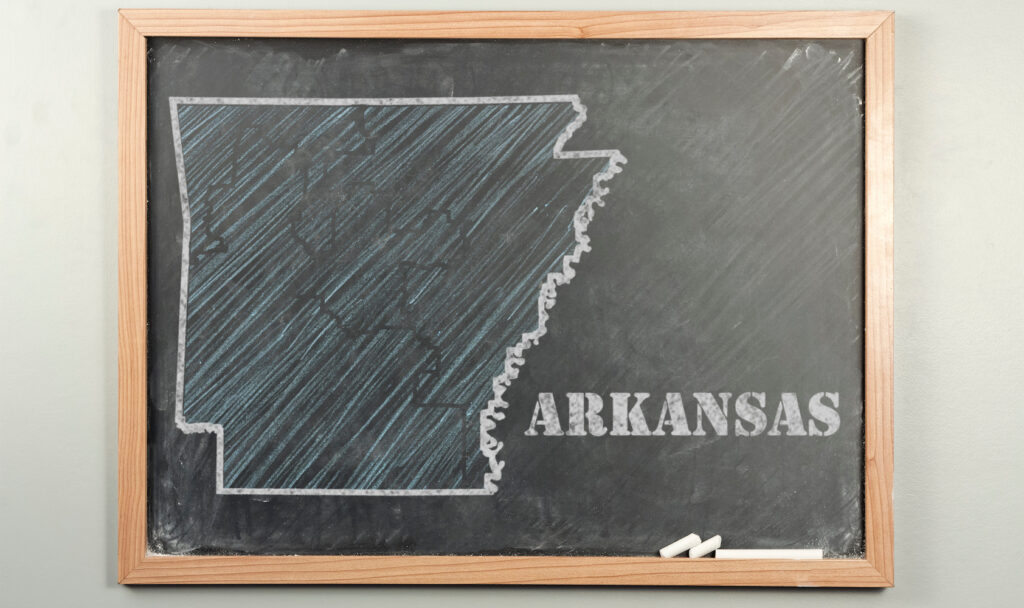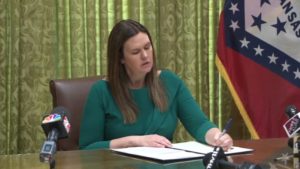‘It’s not good for Arkansas kids’: Education policy expert slams proposal to regulate Arkansas private schools
School choice opponents in Arkansas are attempting to regulate private schools through a constitutional amendment proposal.
The measure – promoted by the state teachers’ union, an NAACP…

School choice opponents in Arkansas are attempting to regulate private schools through a constitutional amendment proposal.
The measure – promoted by the state teachers’ union, an NAACP chapter, and other public education activists – would require the state to regulate private schools receiving any local or state funds as if they were public schools.
“This is a very ideological group that is very hostile to education freedom,” Nicholas Horton, founder and CEO of Opportunity Arkansas, told The Lion. “[They’re] hostile towards parents and kids.”
The proposed constitutional amendment would “require every elementary or secondary school that receives any State or local funds to meet the identical Academic Standards and the identical Standards for Accreditation.”
Further, “[a]ll students attending any elementary and secondary schools that receive, or are in receipt of, any State or local funds must be assessed based on such standards.”
In other words, private schools would be forced to act like public schools, which is problematic in a state where most public school students struggle to meet basic academic requirements.
“We’re last or near last in most major [education] metrics, in terms of reading and math and literacy. We’ve got two out of three kids in Arkansas that can’t read at grade level,” Horton explained. “We’ve tried it the public school way – with that being the primary option for most Arkansas kids for 150 years – and it just hasn’t worked.”
Arkansas joined the education reform movement last March when Gov. Sarah Huckabee Sanders signed universal school choice legislation.
In its first year, the Education Freedom Account (EFA) program approved almost 5,000 applicants, half of whom also have special needs.
But many states with universal school choice face opposition from those who believe government education dollars should always come with government regulations.
However, Horton says public funding doesn’t have to work that way.
“Every welfare program in the world – food stamps, Medicaid, TANF [Temporary Assistance for Needy Families], disability – all of those funds, those are ‘public dollars’ that then go to people that then flow through grocery stores, hospitals, all sorts of private entities,” he explained.
Opportunity Arkansas even released an in-depth report detailing how public funds often flow to private institutions – and in far greater amounts than the state’s EFA program spends on education.
In fact, Arkansas’ other school choice programs are specifically designed to serve low-income and otherwise disadvantaged students.
According to Horton, the proposed constitutional amendment would effectively “regulate private schools out of existence.”
“Any school that accepted those [choice] funds for severely disabled kids to be able to access their schools would now be subject to these state regulations, which is just completely ridiculous,” he told The Lion. “Private schools exist [to] have some autonomy and to be innovative and not be inside this government box.”
And the language of the proposed amendment is so vague that homeschool and other independent students might still be affected.
In order for the proposed amendment to get on the ballot, it will need 90,000 signatures, Horton estimates. Once on the ballot, voters would decide its fate in an election.
The majority of Arkansas parents support school choice, and over 60% plan to participate in the EFA program when it becomes universally available.
“We need to make sure we have strong public schools,” Horton concluded, “but the idea that everyone should be in a public school or we should try to force everyone out of private school and into public school and have no competition and have no accountability and have no marketplace in education, that would be a huge step backwards from all the progress that we’ve made in the last couple years.
“It’s not good for parents. It’s not good for families. It’s not good for the next generation of Arkansas kids.”



